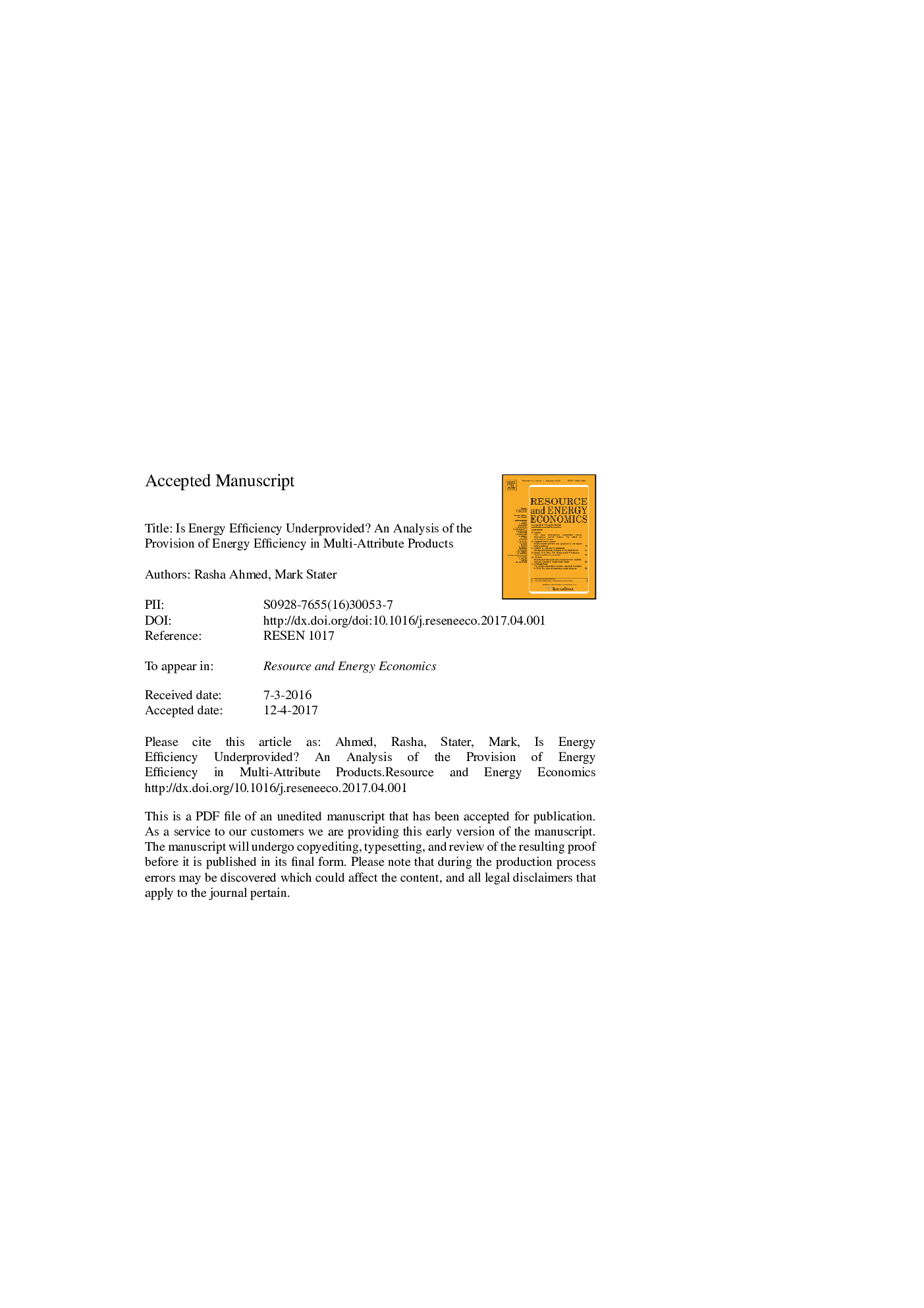| Article ID | Journal | Published Year | Pages | File Type |
|---|---|---|---|---|
| 5104088 | Resource and Energy Economics | 2017 | 43 Pages |
Abstract
The paper investigates the provision of energy efficient products in a differentiated product market. We build a model to understand the provision of quality and energy efficiency in products when a tradeoff exists between these two product attributes represented by a technological frontier. In our model, a monopoly firm offers a high-end and a low-end version of a product to two groups of consumers who differ in their willingness to pay for the product. We find that the relative energy efficiency of the two products depends on the energy price. We show that price discrimination distorts the choice of energy efficiency and quality of the low-end product on the frontier. In addition, it may cause the firm to offer an energy efficiency/quality combination for the low-end product that is below the frontier, to induce the high-end consumers to buy the high-end product. This suggests that the firm's desire to price discriminate in markets is one reason for the slow diffusion of energy saving technologies, a phenomenon known as the “energy paradox.” It also suggests that the technology to improve energy efficiency, even when available to firms, may not be fully utilized.
Related Topics
Physical Sciences and Engineering
Energy
Energy (General)
Authors
Rasha Ahmed, Mark Stater,
